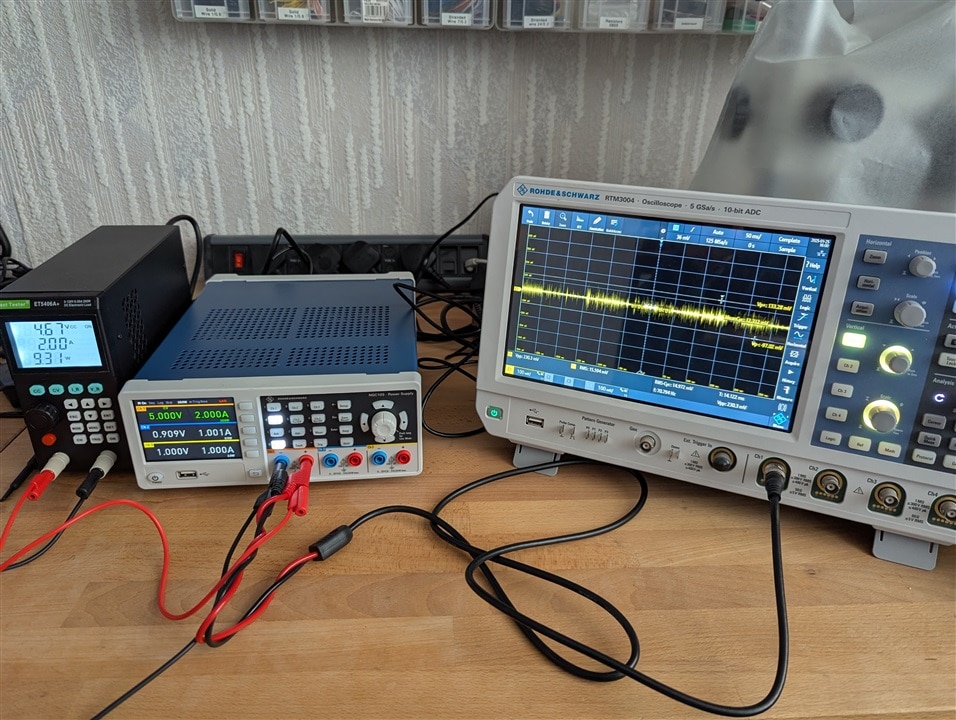Im currently roadtesting the Rohde & Schwarz NGC103 and as part of my investigation I'm trying to measure the ripple / noise and compare it to other supplies. The problem I'm having is that I don't seem to be able to get a reasonable measurement. I get the feeling that isn't swamped by external interference.
I watched a helpful EEVBlog video and tried to optimise my setup but I don't seem to be able to get close to any meaningful measurement. In fact, there's not much different if I just connect the two banana plugs together and measure the noise on my 0V there!
Here's a photo of the best setup I've managed so far. I tried differential measurement with one probe on + and one on - and measuring the difference. Whilst I could see the common mode noise on both channes that were being cancelled out, the result was still noisier than this. I have AC coupling, a 20Mhz bandwidth limit and have tried via a 10:1 probe, a 1:1 probe, and probeless direct via banana to BNC as pictured.

Any suggestions? In fact, is measuring noise in a setup like this even useful? Would you just trust the datasheet on this? For reference, the datasheet says < 6mV peak-to-peak and < 1mV RMS. I'm getting over an order of magniture more.
